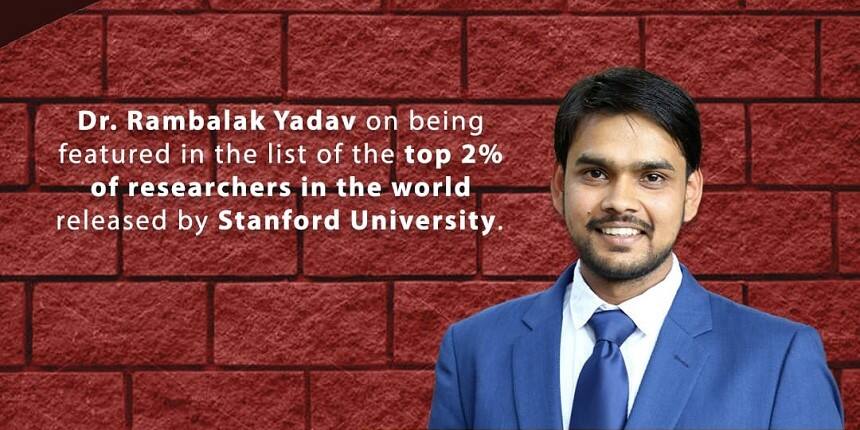IIM Jammu professor features in Stanford University’s list of top 2% scientists
Vagisha Kaushik | October 17, 2022 | 02:48 PM IST | 1 min read
Rambalak Yadav, assistant professor of marketing featured in Stanford University’s list of world’s top 2 percent researchers.

NEW DELHI: Indian Institute of Management (IIM) Jammu faculty Dr Rambalak Yadav, assistant professor, marketing has been featured in the list of the world’s top 2 percent scientists published by Stanford University.
Professor Yadav has published more than 30 research papers in journals of international and national repute till date. His research interests include green consumption, pro-environmental behavior, and online retailing. Yadav has edited special issues in various international journals. He also serves on the Editorial Review Board of the Journal of Consumer Behavior (Wiley Publication).
“From the very beginning, IIM Jammu has set high standards for outstanding value-based quality education, high-quality research, executive education, consultancy, and strong corporate as well as international linkages. IIM Jammu encourages contemporary research concentrating on regional, national, and global issues,” said the institute in an official statement.
Also Read | India has 2,273 scholars in Stanford list of top scientists; China has nearly 8,000
Researchers from other Indian institutes such as Jamia Millia Islamia (JMI), Banaras Hindu University (BHU) also featured in the list. 21 JMI researchers including Imran Ali, Sushant G Ghosh, Tokeer Ahmad, Sharif Ahmed and Tariqul Islam figured in the list.
74 BHU scientists including 32 scientists from Indian Institute of Technology (IIT-BHU) and 36 doctors of BHU and six doctors of Institute Of Medical Sciences (IMS BHU) were also placed. 42 teachers of Jadavpur University have also found a place in the list.
The list features scientists from all disciplines, including science, engineering, technology management, etc. The list includes about 2,00,000 scientists from all over the world in 22 scientific fields and 176 subfields. The top 2% is based on the academics’ scientific achievements measured by the bibliometric index with Scopus, and Elsevier data. The evaluation criteria include the Scopus H-index (rather than the number of publications), the impact factor, total citations, etc.
Follow us for the latest education news on colleges and universities, admission, courses, exams, research, education policies, study abroad and more..
To get in touch, write to us at news@careers360.com.